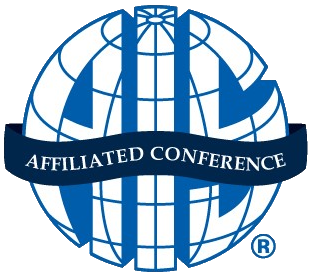Call for panels
ATTENTION - If you submitted a panel proposal to ECIS 2015 prior to 2015-03-16, we are afraid that it might not have reached the chairs, as it seems that there was a problem with the respective email address. We are incredibly sorry for this. Please send your proposal again to panelchairs@ecis2015.eu until 2015-03-24.
Great panels are often amongst the most memorable conference events. Unlike papers, which can always be read after the conference, panels provide a unique unrepeated forum by bringing together experienced and provocative thought leaders to discuss and debate timely and critical issues of interest to the field. Panels need to be carefully designed. They are not just four short linear presentations of small papers, but should lead in a dynamic way to new, emerging insights. Panels need to bring together a range of different - ideally controversial - perspectives on a focused topic in an arrangement that opens up the topic under consideration in a structured manner and allows a wide–ranging debate including active contributions from the audience.
1) Important questions: What makes a successful panel proposal? Panel proposals should be able to answer the following questions. 1) Focus of panel: What is the theme of the panel? Why does the topic matter in general and to the participants of ECIS 2015 in particular? Where possible, a reference to the overall theme of the ‘Networked Society’ should be made. What is the target audience? What will they get from attending the panel? Is a new topic introduced or will the panel provide new perspectives on well-known problems? It is often helpful to present the theme of the panel in the form of a question or a set of questions (with a non–trivial answer).
2) Panellists: Who are the panellists? Why have they been selected for the panel? What are their credentials and how do they complement each other? Who is going to chair the panel to ensure that it runs according to its objectives and captures the main lessons learnt at the end? Given that the best panels include diverse viewpoints, we would expect panellists to be drawn from a number of different institutions/countries. This could include a mix of academic and industry representatives or senior and junior academics.
3) Structure: How will the panel be structured? Will it be presented as a debate between ‘opposing’ positions or consist of ‘alternative’ positions? How long will each presentation take? It is important to ensure that the focus is more on the debate and insights emerging from this discussion, rather than panellists rushing through Powerpoint slides. How much time will be left for audience participation? Typically it is a good idea to allow at least half of the time for a dialogue with the audience. This could also include inviting contributions via solutions like Twitter or GoSoapBox.
One possible structure includes basing the panel on a series of questions that each panellist will answer from his/her own perspective or structuring the panel around the different perspectives on the topic. Another option is to build the panel around narratives or working on concrete examples or cases, which are told from multiple perspectives.
Please submit your panel proposals by March 6, 2015 to panelchairs@ecis2015.eu
The panels will be assessed in terms of the three questions listed above. As such, panel proposers are expected to submit a document in two parts. The first part (max. 3 pages) will be used for the evaluation of the proposal and should explain the rationale of the panel design as well as providing a detailed timeline for the various parts of the panel (assume a 90-minute duration for the whole). As the choice of panellists is integral to the design, panel proposals should not be anonymous. Instead, brief biographies of all proposed panellists and an explanation of why each individual has been selected should be included. The second part of the document (max 2 pages) is the version to appear in the proceedings. This should include a description of the panel theme including details on why the panel will be of interest to conference attendees, details of the panellists (including biographies) and a high-level version of the timeline. By submitting the panel proposal, the organisers confirm that, if selected, all panellists will register for and attend the conference. The panel proposal must not exceed five (5) single-spaced pages and must conform to the ECIS 2015 submission template. The 5-page count must include all text, figures, tables, and appendices. Abstract, keywords, and references are excluded from this page count.


